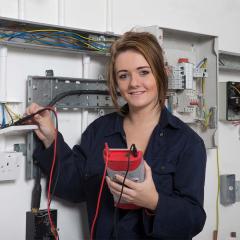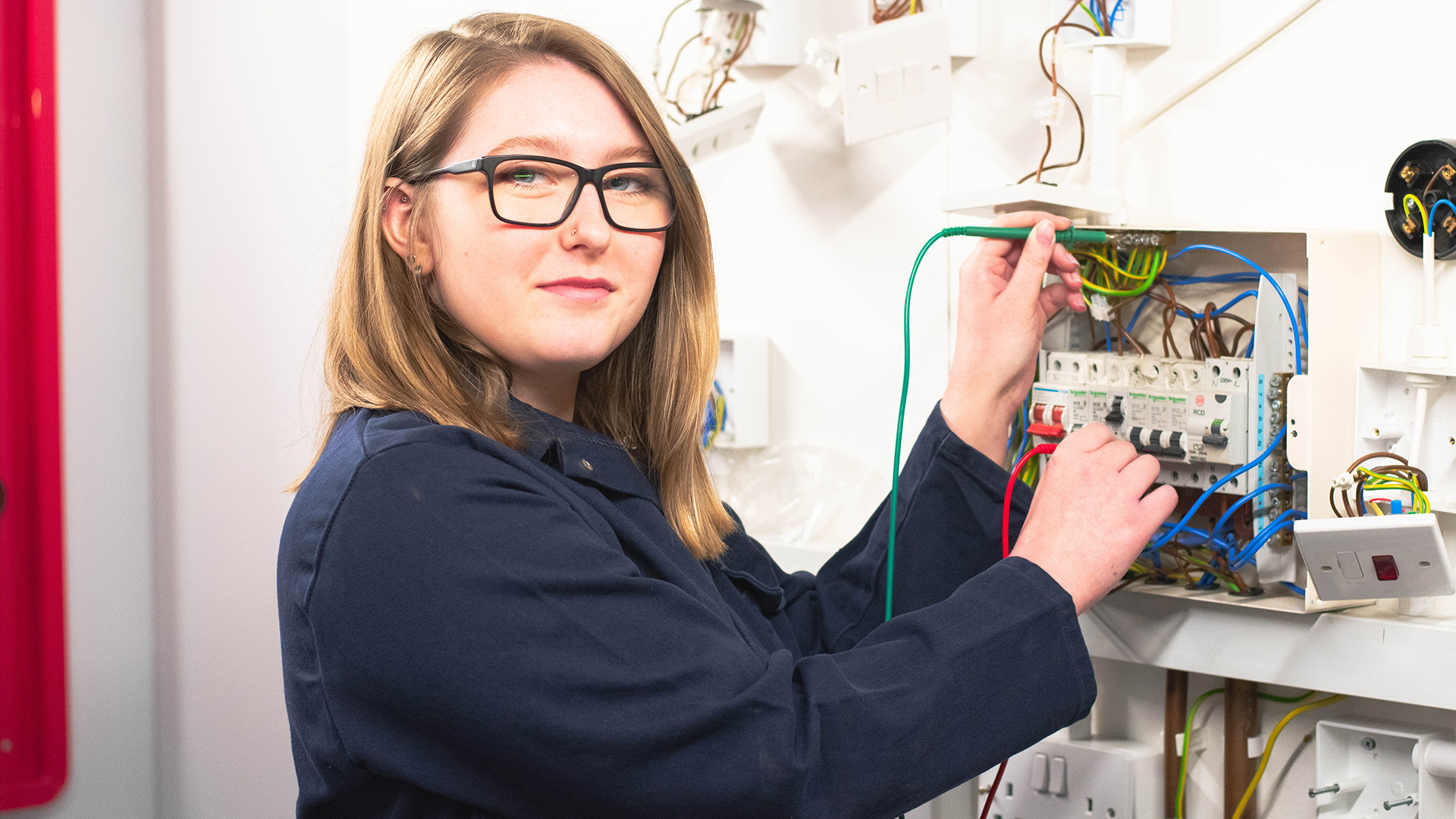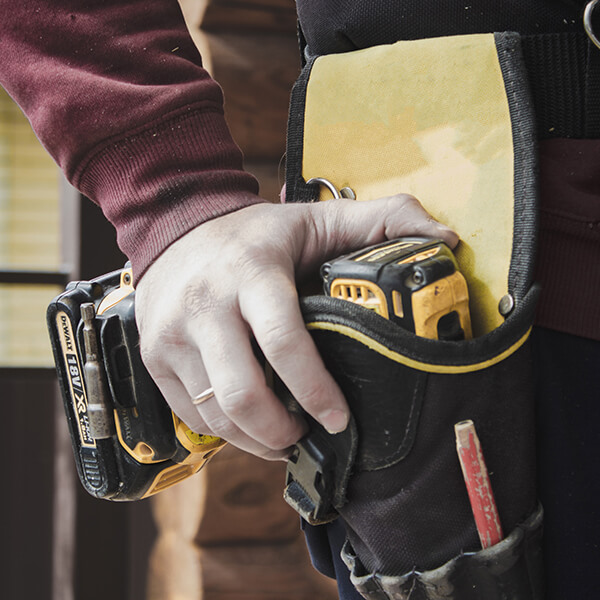Spark Something with an Electrical Installation Course at EDC
With opportunities in domestic households, the industrial sector, commercial properties, renewable energy and many other industries, becoming a qualified electrician is an excellent career choice.
At East Durham College, you'll gain the knowledge and skills you need to begin your career in the electrical industry - you'll learn all about the principles of electrical installation and gain a wide variety of skills in specialist areas such as electrical maintenance, installing instrumentation and highway electrical systems.
Our mission is to develop our learners into confident and skilled young people with highly accomplished trade skills; at the end of your time on an electrical course with East Durham College, you'll be well-equipped to start looking for jobs as an electrician as you'll have the skills that many employers will be looking for.
According to jobs website Reed, the current average salary for an electrician
in the UK is £40,604.
Study at The Technical Academy
Our electrical installation courses are taught at our Technical Academy. This purpose-built facility, designed to give learners access to the very best facilities and equipment they'll need during their course, is a fantastic place to study to become an electrician.
The state-of-the-art facility is on the South West Industrial Estate in Peterlee. The Academy is a 37,000 square foot space with a vast workshop area, training classrooms, IT suite, cafeteria, recreational area and is home to specialist lecturers with years of experience in their professions.
The workshop itself is open plan and is designed to increase interaction between the different trades that learners study at the Academy. This is designed to simulate a real construction working environment where learners will regularly be working with fellow workers who may specialise in other trades.
Our trainee electricians will complete the bulk of their work in our dedicated electrical section. Here you'll find purpose-built electrical training bays with real wiring configurations, all of the equipment you'll need such as insulated tools and plenty of workshop space for completing your practical work. Everything is overseen by our experienced electrical lecturers, who are on hand to make sure you get the very best out of your electrical education at East Durham College.
Our Electrical Courses
As having knowledge of electricity and basic principles is essential for any aspiring electrician, most people who take this course will start on a Level 1 programme, with the aim of moving on to Level 2 and Level 3 programmes afterwards.
The EAL Level 1 Diploma in Electrical Installation will ensure that you gain the basic knowledge and craft skills of electrical installation. This route is fully suitable for those new to the industry as no previous electrical experience is required - so whether you're fresh out of school and looking for training or have been working in another industry for some time and want a change, this route is the best option for you. You should note that this course does not qualify you to be an electrician - the aim instead is that you should move on to higher level courses where you will gain your full qualification.
If you have previous experience or have already acquired the Level 1 diploma, you are likely to be eligible to move on to the EAL Level 2 Diploma in Electrical Installation. This more advanced qualification expands upon your previous knowledge, covering such topics as health and safety, electrical installation theory and technology, electrical installation methods, procedures and requirements, electrical installation craft skills and electrical science/principles. After completing this course you may (depending upon the employer) be able to be employed as an apprentice or a junior electrician.
The EAL Level 3 Diploma in Electrical Installation is the highest electrical qualification we offer. This course is designed to help you progress into employment as an advanced electrician, self-employed electrician or to move on to university, where you may study subjects such as electronic and electrical engineering. To take this course, you should have relevant experience and a Level 2 qualification.







